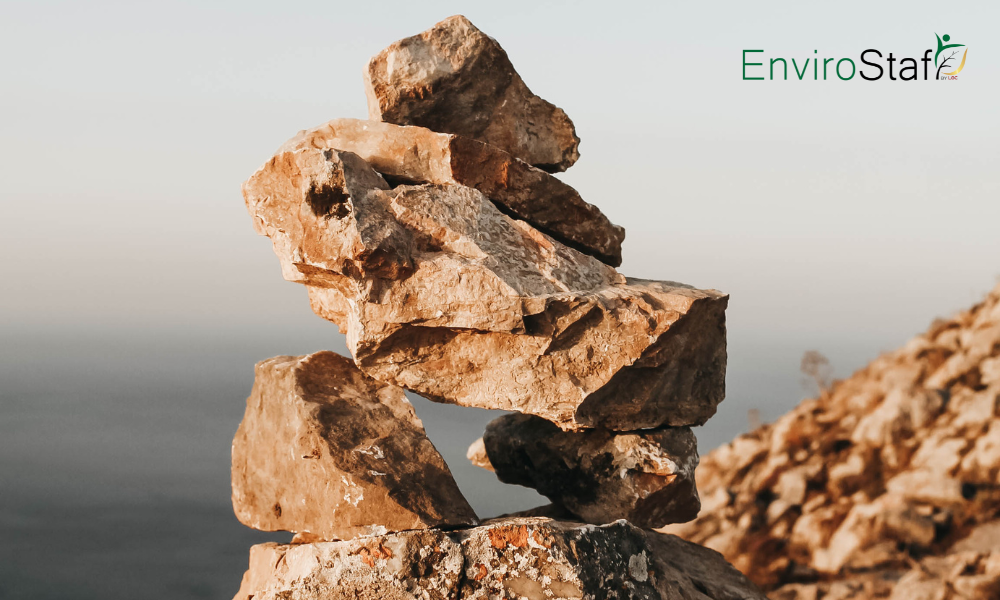Geology, the study of the composition of the earth and its physical processes, can lead to careers across the environmental space from the surface where we all live to miles below in places no human can go. But what do geoscientists do? We answer that below.
What do geoscientists do?
Many geoscientists are involved in the search for and development of natural resources, such as petroleum. Others work in environmental protection and preservation and are involved in projects to clean up and reclaim land. Some specialize in a particular aspect of the Earth, such as its oceans.
Geoscientists study and work with minerals, soil, agriculture, energy resources, fossils, oceans and freshwater, the atmosphere, weather, the environment, natural hazards and space exploration. Some examples would be geologists, geochemists, geophysicists, oceanographers, paleontologists, petroleum geologists and seismologists.
Jobs in geoscience
Now that we can answer the question, “what do geoscientists do?” we can learn more about specific jobs in geoscience. Jobs in geology are found in government agencies, private companies, and nonprofit and academic institutions. Government agencies hire geologists to investigate, plan and evaluate excavations, construction sites, natural disaster preparedness, and natural resources. Private companies hire geologists to help locate natural resources (minerals, oil and natural gas), evaluate environmental impact and comply with government regulations, among many other tasks.
Most geoscientists split their time between working indoors in offices and laboratories and working outdoors. Doing research and investigations outdoors is commonly called fieldwork and can require irregular working hours and extensive travel to remote locations.
During a typical day in the field, a geoscientist may use a hammer and chisel to collect rock samples and then use ground-penetrating radar equipment to search for oil or minerals. In laboratories, they may use X-rays and electron microscopes to determine the chemical and physical composition of rock samples. They may also use remote sensing equipment to collect data, as well as geographic information systems (GIS) and modeling software to analyze the data collected.
Geoscientists often supervise the work of technicians and coordinate work with other scientists, both in the field and in the lab.
Geoscientists typically need a bachelor’s degree in geoscience or a related field, such as physical science or natural resources. Employers sometimes prefer to hire candidates who have a master’s degree.
Geoscience programs include courses in subjects such as mineralogy, petrology, and structural geology. Programs also may require coursework in mathematics, engineering, and computer science, as well as in other sciences.
Geologists are licensed in 31 states. Although a license is not required to work as a geologist in many cases, geologists that offer services to the public in these states must be licensed. Public services include activities such as those associated with civil engineering projects, environmental protection and regulatory compliance.
Skills and growth
It’s important to develop skills such as communication, critical thinking, physical stamina for outdoor work and problem solving. Often, geoscientists must plan and carry out field studies, analyze data such as aerial photos or rock samples, conduct lab tests on field samples, create geologic maps and charts and prepare reports to be presented to employers or other interested parties.
The Bureau of Labor Statistics notes demand for geoscientists will be steady at 5% growth in the coming decade. The need for energy, environmental protection, and responsible land and resource management is expected to spur demand for geoscientists.
Geoscientists will be involved in discovering and developing sites for traditional and alternative energy sources. For example, geoscientists study wind speeds and patterns to determine sites that are suitable for wind turbines. The increased use of and demand for alternative energy should lead to more jobs for these workers. The median pay in 2021 was $83,680.
While demand for geoscientists covers the entire United State, Texas, with its robust oil and gas industry, and California, a progressive clean energy state, lead in employment opportunities, according to the DOL. Geoscientists in Texas make an average salary of $144,950.
Because you can answer the question, “what do geoscientists do?” you can get started on finding the right position for you. Whether your goal is to find the next big natural gas deposit, help sequester CO2 safely below the earth’s surface, develop wind resources or protect the environment from unintended consequences of mineral exploration, geoscience lets you get your hands dirty in a rock-solid career.
***
EnviroStaff services environmental clients nationwide to connect them with amazing professionals to fill open positions on their team. Contact us today to learn about how we can help you accomplish your hiring goals.

